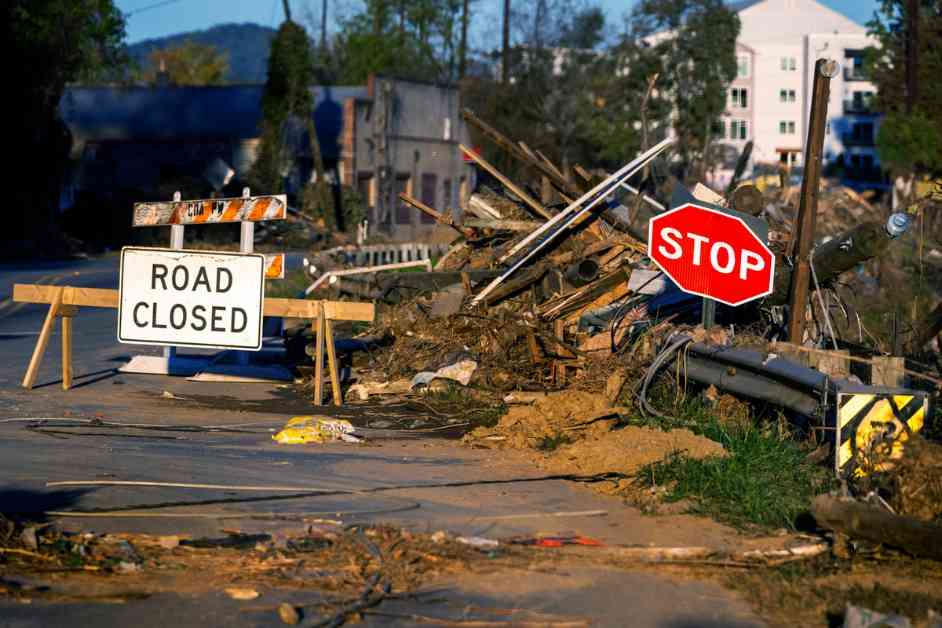The impact of Hurricane Helene on abortion services in the Southern states has been significant, especially in North Carolina. The only abortion provider west of Charlotte in Asheville has been closed for a month due to the lack of potable water after the hurricane hit the city. This closure has forced patients to travel long distances for care and has put a strain on other abortion clinics in the state.
Julia Walker, a spokesperson for Planned Parenthood South Atlantic, expressed concern over the loss of access for patients not only in North Carolina but also in surrounding states. She highlighted the need for more laws that allow greater access to care, especially in times of natural disasters like Hurricane Helene.
The Asheville clinic, which used to perform a couple hundred abortions per month, is unable to operate without potable water. While other healthcare facilities have brought in tanker trucks with water, Planned Parenthood is still working on securing emergency water supplies from the state. In the meantime, the organization has shifted some of its operations online through telehealth appointments for services like prescribing birth control and gender transition medications.
The closure of the Asheville clinic has forced patients to travel to locations in Charlotte and Winston-Salem, which are more than two hours away. This has added to the challenges faced by patients seeking abortion care, especially after neighboring states implemented limits or bans on the procedure following the Supreme Court’s ruling in 2022.
Data from the Guttmacher Institute shows a significant increase in patients seeking abortions in North Carolina from other states. In 2020, clinics provided abortions to about 5,500 out-of-state patients, which rose to 16,000 in 2023. The closure of the Asheville clinic is expected to have significant impacts on the already strained system, causing delays and challenges for patients navigating the limited access to care.
Hurricane Helene is not the first storm to impact abortion care, as seen in the aftermath of Hurricane Harvey in Texas in 2017. The closure of healthcare facilities due to the storm led to challenges for women seeking abortions, including financial assistance and travel restrictions. Similarly, the Mountain Area Abortion Doula Collective in North Carolina has seen an increase in patients seeking help since Hurricane Helene, including those facing logistical hurdles and financial challenges.
The collective has been providing support to patients in need of abortion care, including one patient who had to travel long distances and resettle multiple times due to the storm. The challenges faced by patients seeking abortion care have been amplified by the impact of Hurricane Helene, highlighting the need for greater access and support for reproductive healthcare services in times of crisis.










